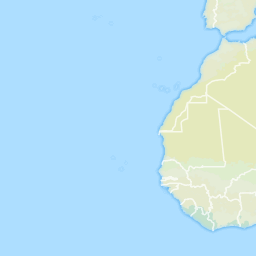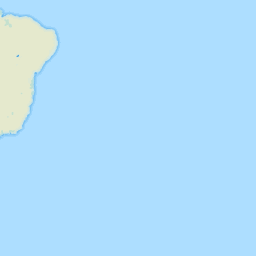- Protologue : Sp. Pl. 972. 2: 972 (1753)
Ecologie et Distribution :
- Afrique TropicaleBiologie :Annual (or perennial) coarse grass; culms 1-3 m tall; leaf blades ± lanceolate, 10-45x2-7 cm, base cordate; cupule globose-ovoid, 5-15 mm long, bony, white or bluish; male raceme 3-5 cm long, exserted from mouth of cupule; spikelets imbricate, 7-8 mm long, borne in pairs or threes, one pedicellate, the other(s) sessile.Ecologie :(In Africa:) stream sides also in wet forest, swampy places; occasionally cultivated (source of beads; fodder); 0-2000 m alt. There is considerable variation in size, colour and hardness of cupules; only var. lacryma-jobi with large hard ovoid cupules seems to have been introduced (Africa). Indigenous to S & E Asia; Found “wild” in W. Africa from Senegal to W Cameroon, locally in Zaire; in E. Africa: Uganda, Kenya, Tanzania S wards to Zimbabwe (C) and SE S. Africa, also in NW Angola. In N. Africa: Algeria, Egypt; also Madeira, Canary Islands cultivated since ancient times, 3000-4000 years ago in India, 2000 years ago in China, and was very important before maize and rice became widespread staple foods (Brink & Belay, o.c.: 46-47). – A good fodder plant. Dispersed by man to tropical America and to most temperate countries worldwide, often running wild. . There are some varieties and cultivated races in Asia, but only var. lacryma-jobi is known in Africa, spontaneous and anthropophile around villages and in old cultivation sites (Burkill, o.c.: 206).
- Afrique AustraleBiol./Eco :annual-Graminoid- Ht up to 1.3 m. Alt: 40 - 1000 m. Distribution: EC, KN, MP
- MadagascarBiol./Eco :Herb; Humid, Subhumid, Dry, Subarid; Forest, Anthropic; 0-499 m, 500-999 m; distribution: Naturalised in Madagascar.
Synonyme(s) Homotypique(s)1
- Coix lacryma L.
Jstor_African Plant Initiative Catalogue herbiers Genève The Euro-Mediterranean Plant Base Flora de Guinea equatorial IPNI The International Plant Name Index Catalogue de Madagascar POWO - Plants of the world Online African Plants - a Photo Guide Tropicos - Missouri Botanical Garden World Flora online Base Herbier Afrique du Nord MPU efloramaghreb















